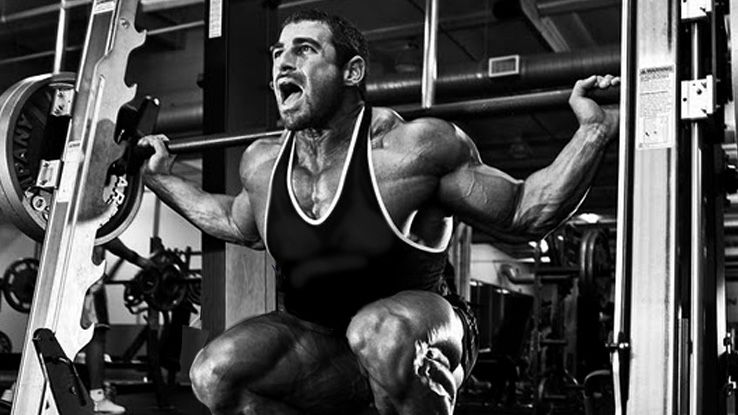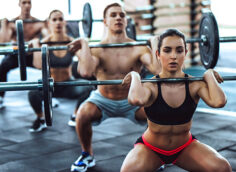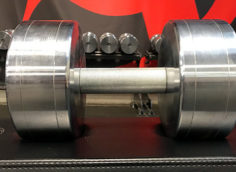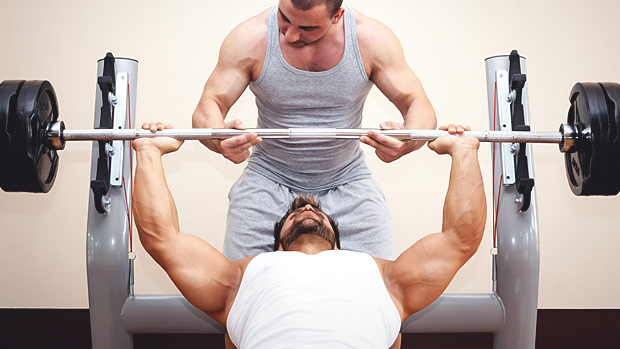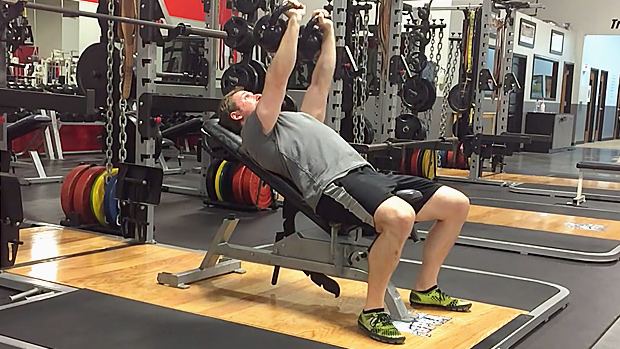Here's what you need to know...
- Many strong guys hate single-leg exercises because they're too difficult to use much weight on. As such, they skip them.
- Single-leg work, however, offers a myriad of benefits that can contribute to any strong lifter's long-term health and development.
- The kickstand back squat offers all the functional benefits of single-leg work, yet still allows you to pile on the weight.
Single-leg training has a flaw, a major handicap that that keeps many strong lifters from giving it an honest shot. Simply, the weights used can seem too light to have any effect. Sometimes that's true. Sometimes.
Singular Justification
The reason so many coaches are bullish on single-leg training is because when we're moving, we're typically on one leg. So it makes sense to do some single-leg stuff from a movement and functionality perspective. Not to mention, repeatedly hammering away at "the big 3" without ever paying attention to other full range of motion movements is a surefire way to develop overuse injuries.
Still, the lightweight stigma is tough to shake. Single-leg training, with the exception of sled pushes, is difficult to load up heavy. Some combination of weight vests and dumbbells is the only way to make it work, and not everyone has access to these things.
Not only that, it requires a very different type of support strength than normal heavy squats or deadlifts, so it can be very humbling even with light loads. I appreciate both sides. Single-leg training is great, and heavy lifting is great. So let's meet in the middle.
Kickstand Back Squats
The kickstand back squat perfectly demonstrates that middle ground.
In the kickstand back squat, the position of the assisting leg allows you to get a full range of motion in the working leg (top leg on box or plates).
The purpose of the box or plate is to put the working side in perfect position while limiting the amount of assistance provided by the other leg. The movement can be performed from the floor without the box, but you won't be able to get the same range of motion and it can lead to compression on the knee of the assisting leg.
The main benefits of this movement are flexibility in the hips, knees, and ankles, and serious single-leg strength. It will also improve all your other squatting movements and safely work the lower body musculature hard through a very full range of motion.
You'll notice that it's also very easy to keep a neutral spine even in the very deep squat position. The fact is, this movement has been instrumental in helping people achieve better bilateral squat mechanics and flexibility.
I suggest using the kickstand back squat on days where the main lift is the deadlift as this movement complements the hinge pattern nicely.
Loading wise, use as much weight as you can safely handle with a barbell. I used 135 pounds for the purposes of the video, but I've gone as high as 250 pounds for reps with good success. Keep in mind that the heavier you go, the more you'll feel yourself using the assisting leg. This isn't bad or wrong, just be aware.
Can I Kick It?
Using heavy weights is fun and many big, strong physiques have been built using basic exercises with as much weight as humanly possible. I get it.
At some point, however, you have to do some lighter stuff you aren't crazy about for the sake of your long-term physique health and development. The kickstand back squat may be the perfect marriage of single-leg functionality and meathead mastery.

